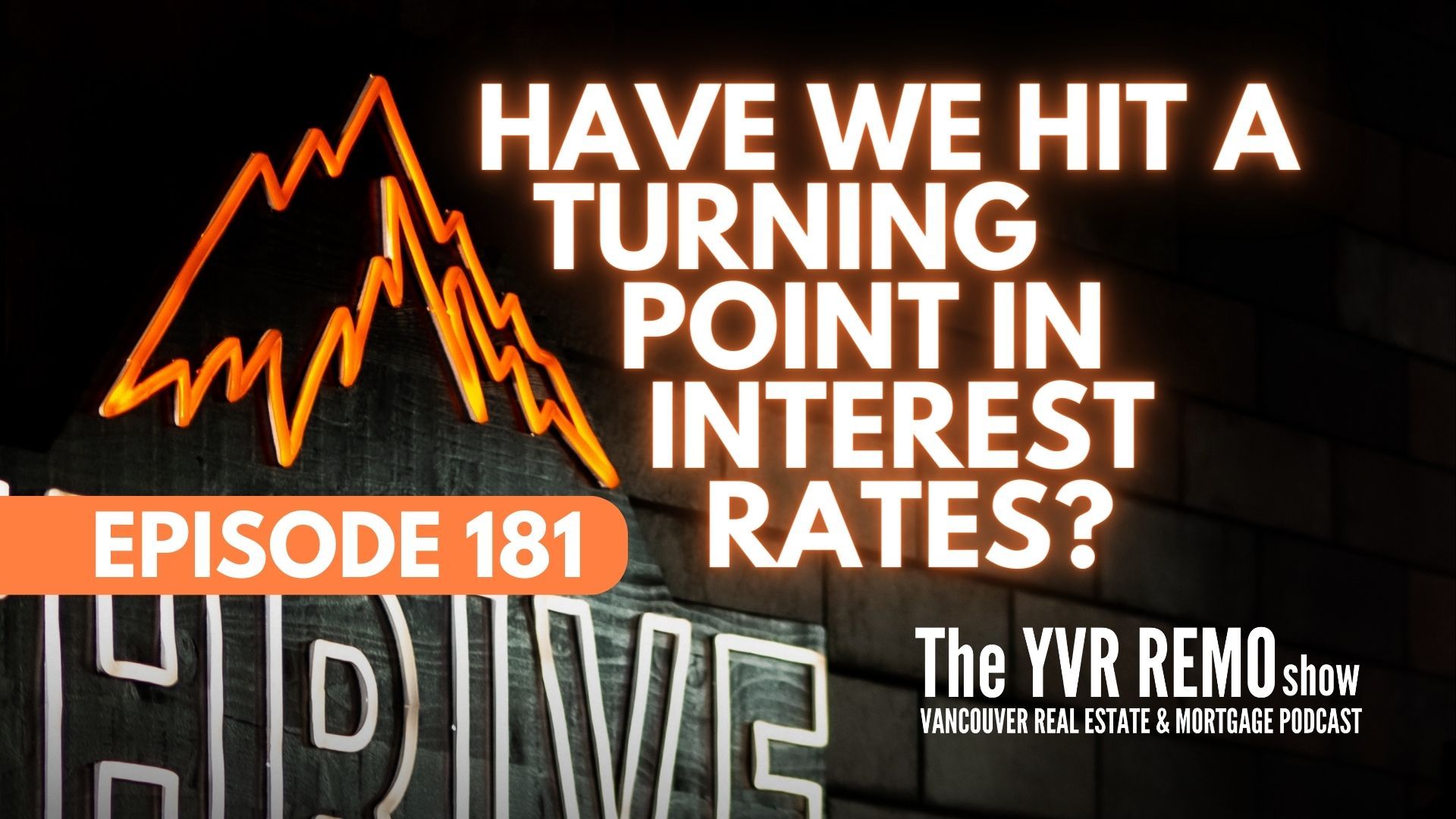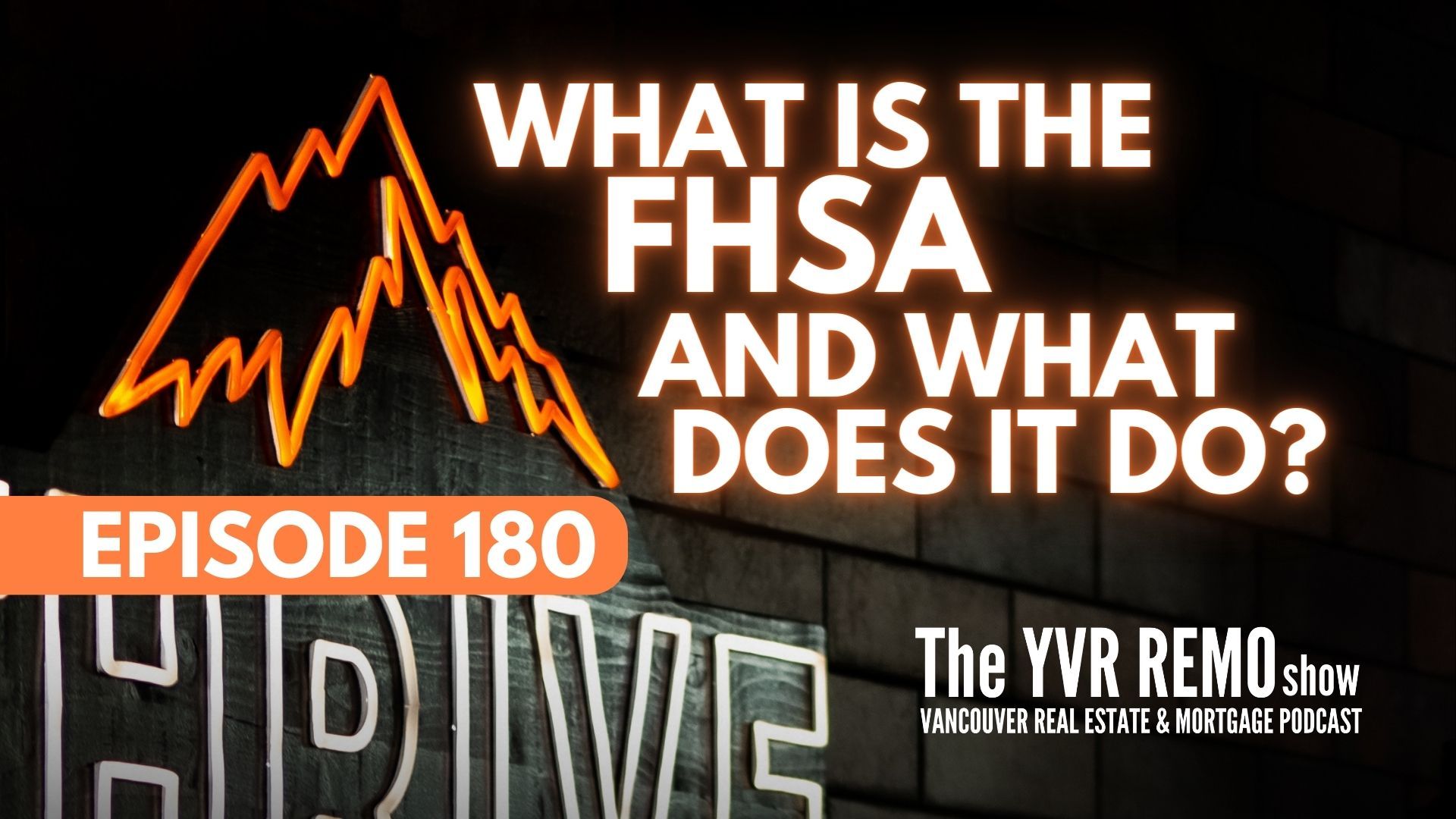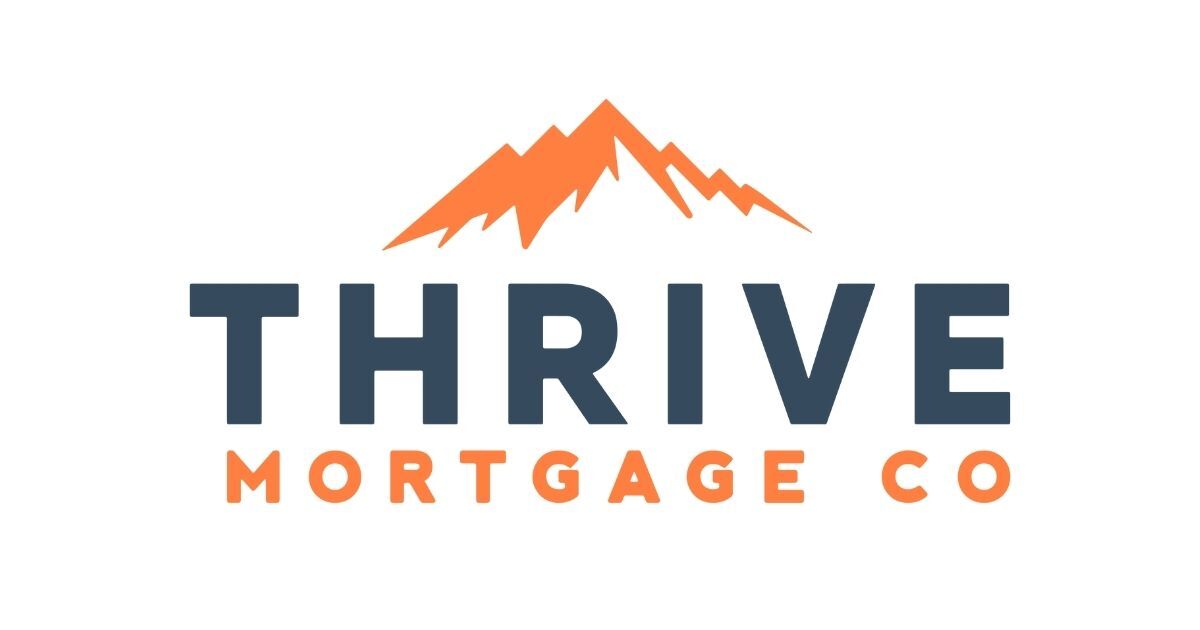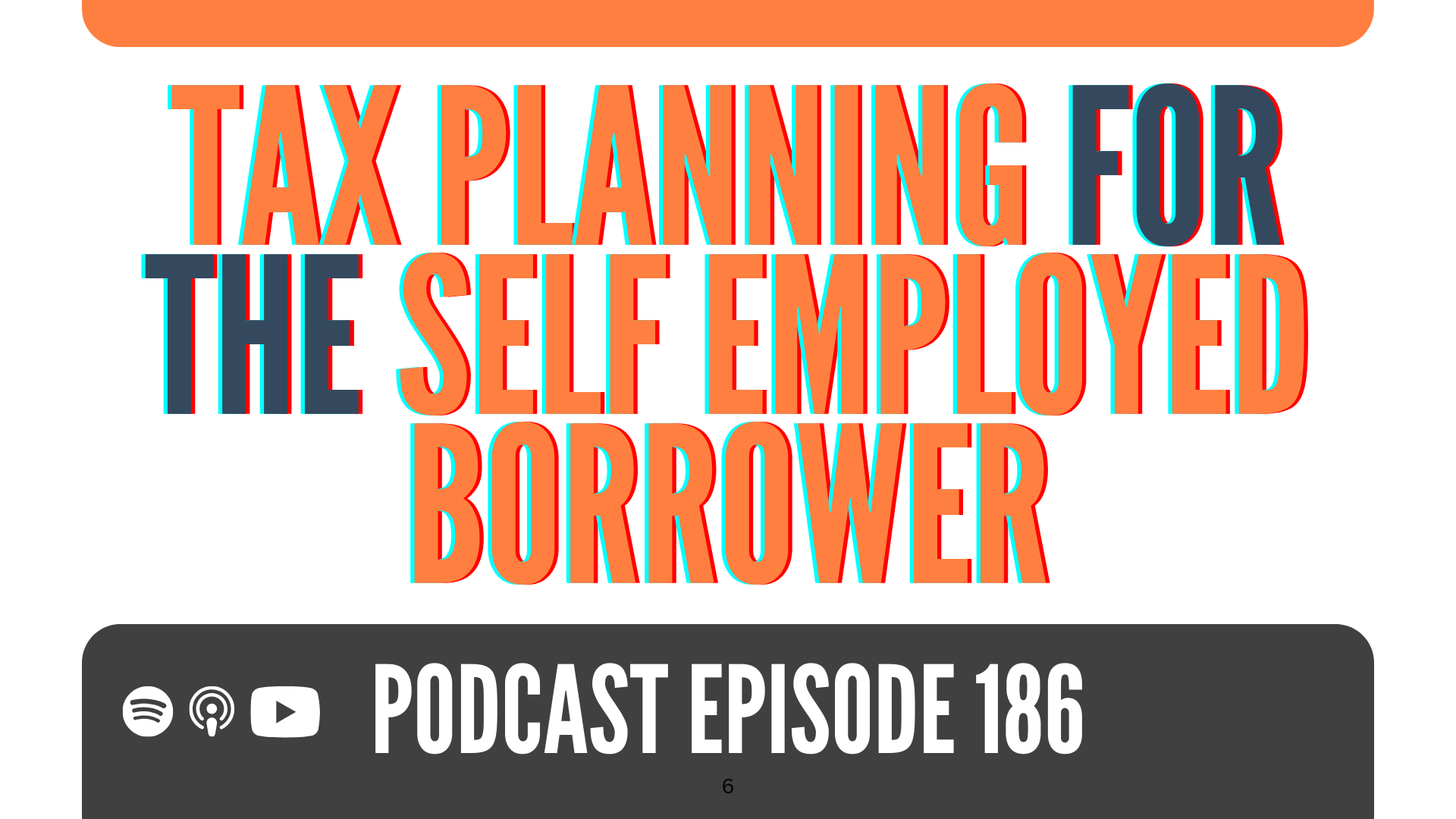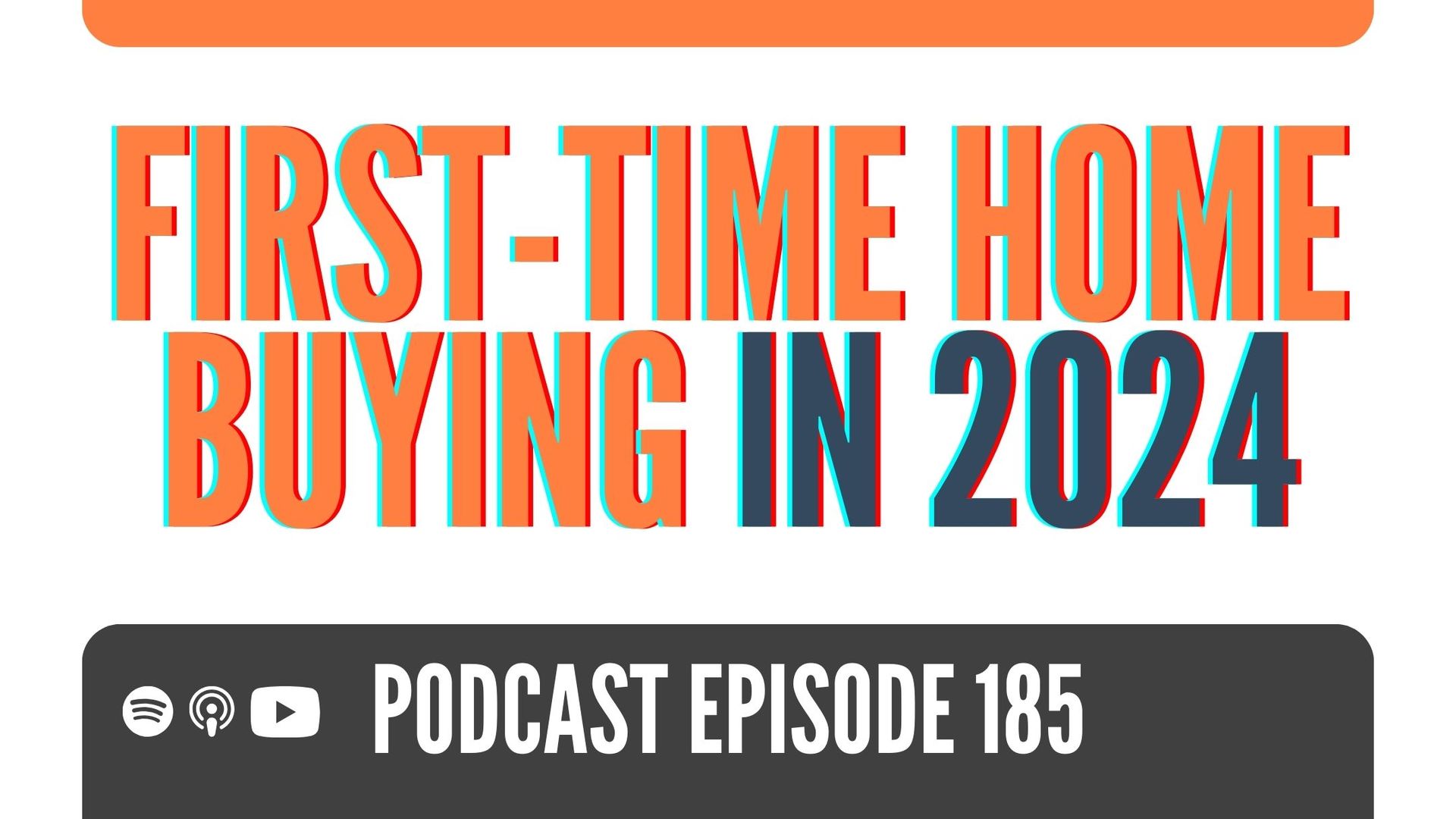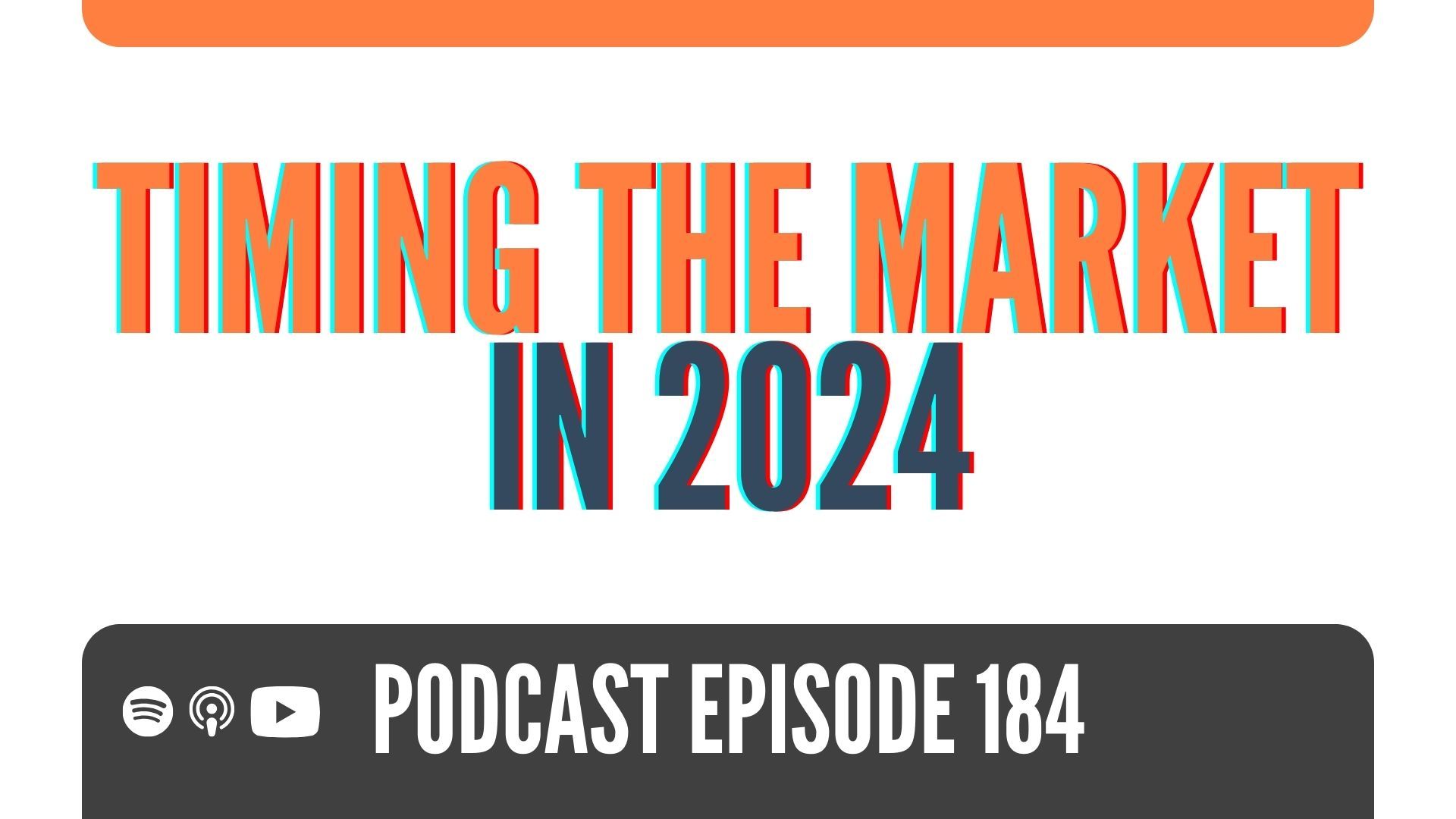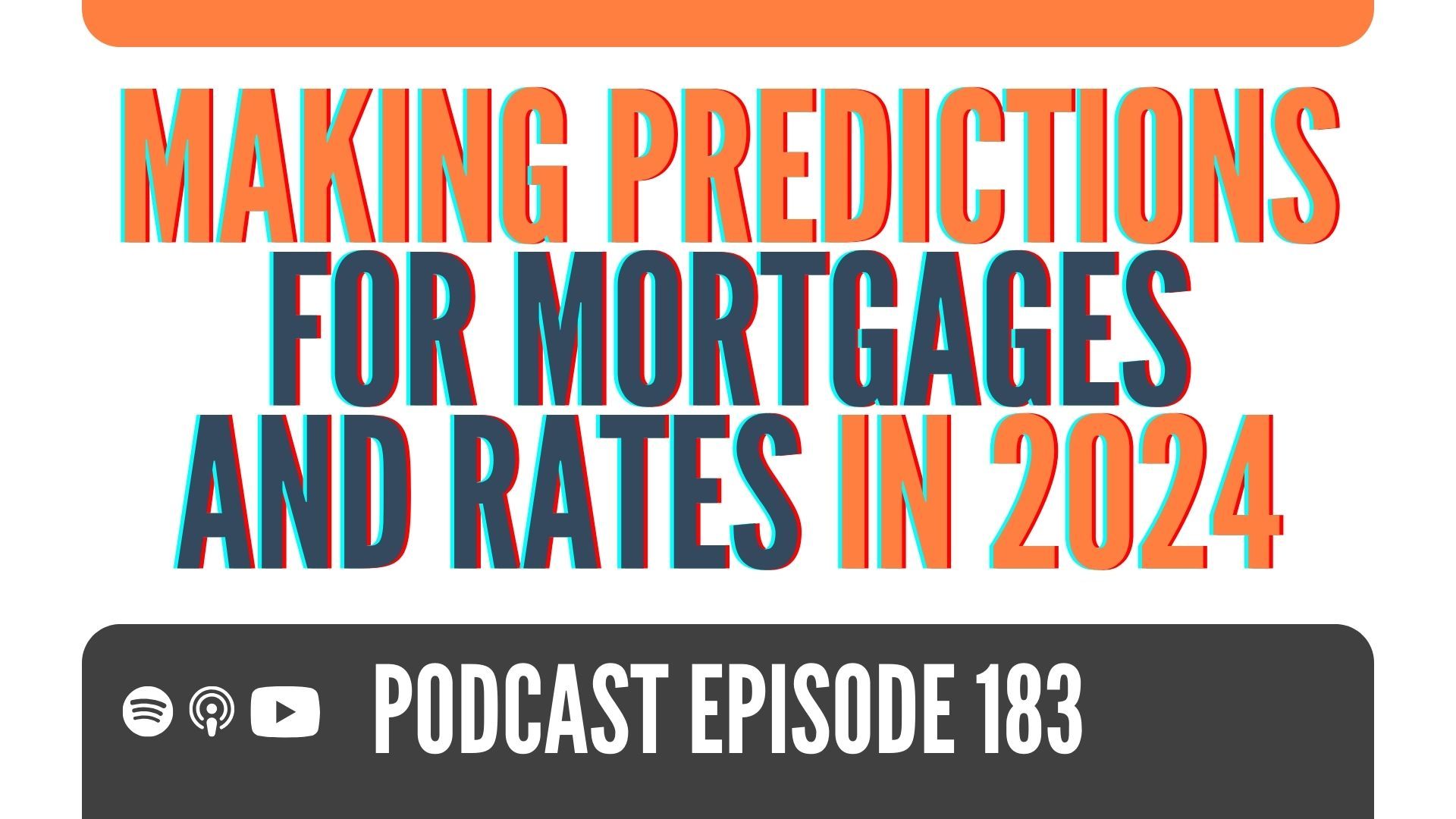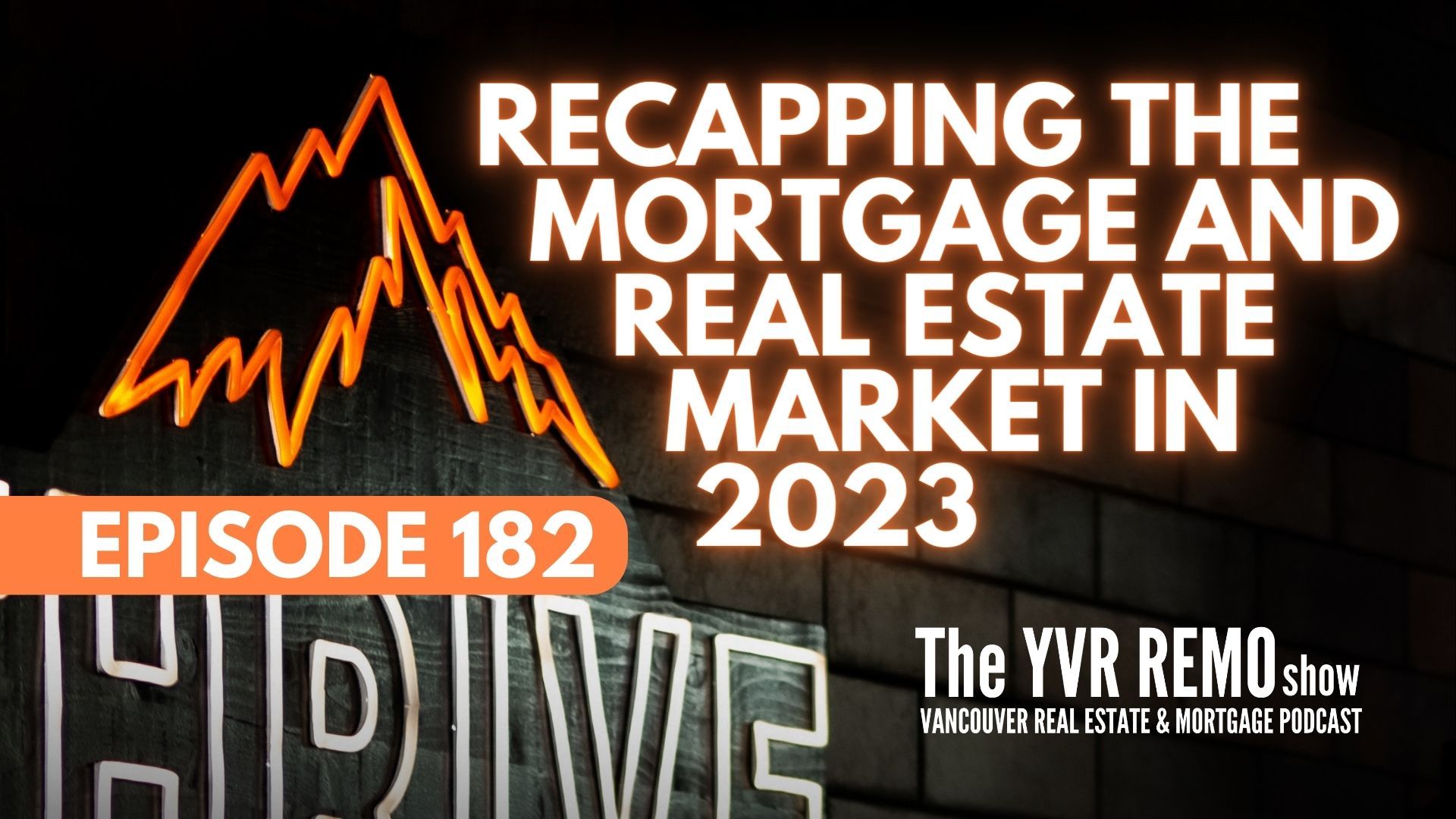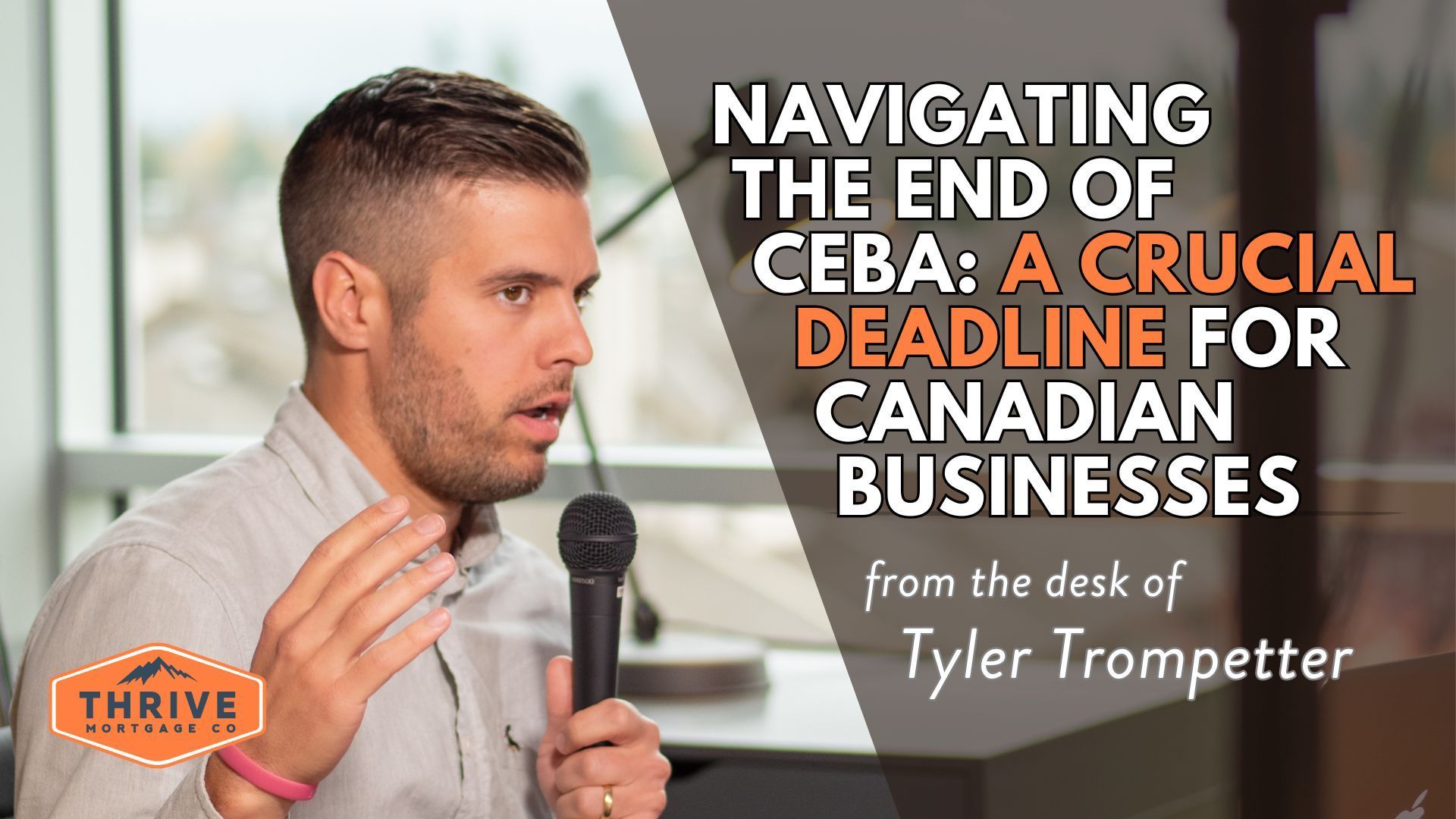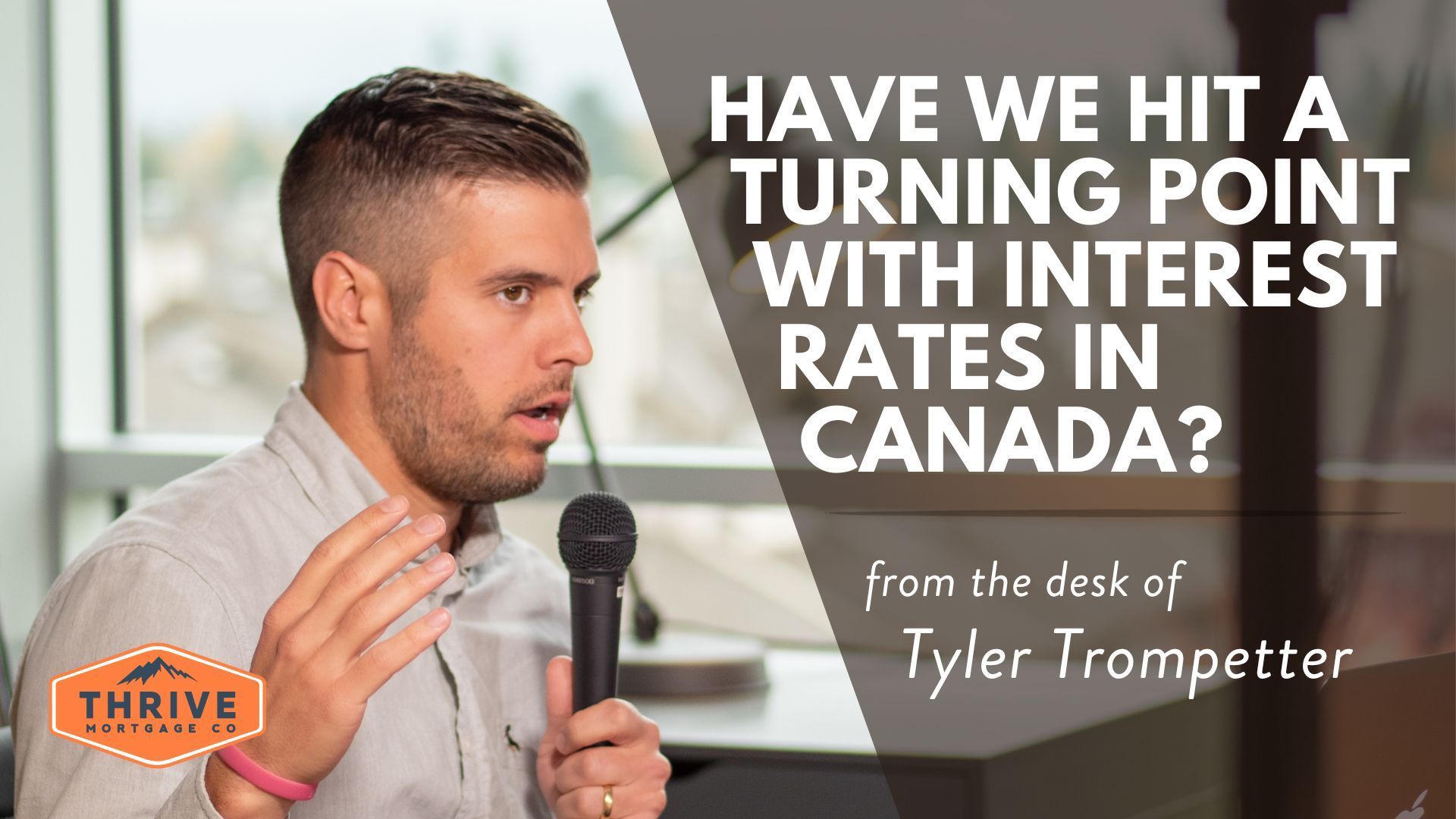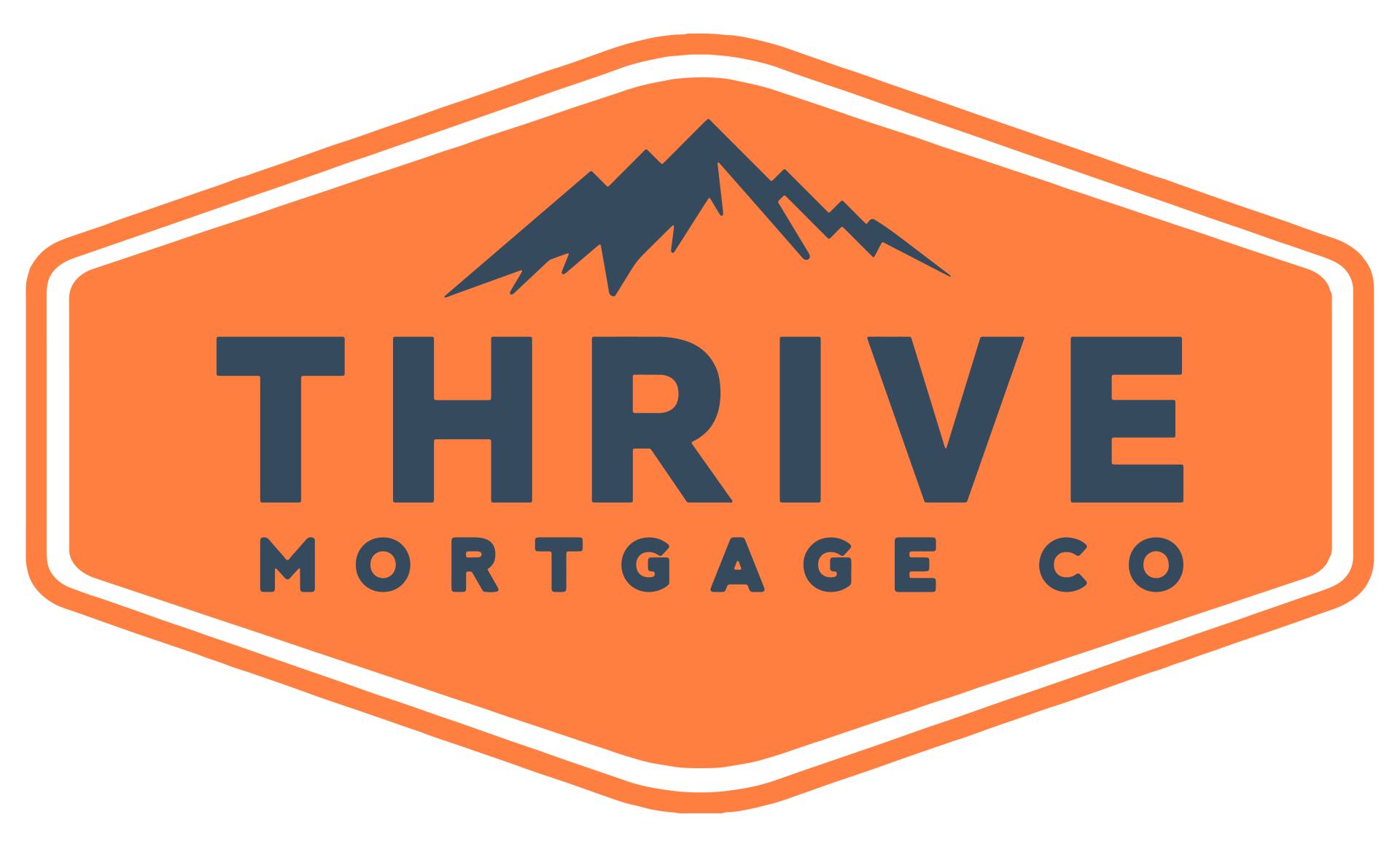The YVR Remo Show Episode 61 - Investing In Real Estate Out of Town w/ Mike Ponte
Key Tips For Investing Out Of Town!
Alex McFadyen
We are bringing a second time guest on the show to talk about investors, specifically investing out of town. With the equity growth we've seen in real estate in the past few years, the biggest question is what do I do with it? Where can I invest my money? And where can I put it and that's why a lot of people are drawn to working with our team at Thrive Mortgage Co. Because we care.
For this episode we brought on Michael Ponte of Prosperity Investments. Michael runs an online Facebook group, it's dedicated to helping investors learn, grow, and gives back quite a bit. More importantly, he's been in the investing space for about 20 years now.
We love to show people how to get into the market and by just one extra property, to create wealth. We thought it was a great idea to have Michael come back on for a second time around because he was such a great guest the first time. He talks a little bit about some of the things that he recommends for people who are thinking about investing out of town and why you should be considering it.
Check out Mike's Facebook group, Savvy Investor.
https://www.facebook.com/groups/341243106757064
He's done a fantastic job of curating a lot of content and some great people, and he's not out there trying to sell you all day, he's given a lot of education to people.
We're talking about investing outside of your city and investing across the country.
Deryk Williamson
Everyone knows what's going on in our local real estate. Values are going higher and higher. A lot of people are actually getting priced out of the market, believe it or not, a lot of people can't even afford. They don't qualify for that condo or they don't have the down payment or whatever the situation might be. It's a lifestyle thing, right? They may need that detached home and they just can't qualify or they can't afford it but they still want to get into the market. So a good friend of mine actually called me today, he's been thinking about getting in and been watching the market, it's just gotten to a point where it's out of reach for him. He totally flipped the script and he wants to buy something out of town. He wants to buy an investment property, he knows he's probably not going to be able to buy his forever home for probably another five years. That's kind of in his plan but he wants to start this now because he understands the benefits of getting into the market. Now we're looking at different markets that he never really thought of before. It will produce some revenue for him in the short term.
Alex McFadyen
That's the conversation that we're seeing all day in addition to the fact that the values of properties in the Lower Mainland are appreciating and we've got a lot of people who are first, second, or third time investors just trying to figure out what to do. Where do I go? Where do I even look? Where do I even start?
What are the reasons that you're seeing people start to step outside of their local communities to start investing?
Michael Ponte
This whole situation with a pandemic has opened people's eyes. It's also provided an opportunity that has never been available to them. People are still working from home but it's the effectiveness that is actually happening. This is the first time companies have been forced to actually accept this, people are working from home and things are still being done at cost. It’s benefiting a lot of these employees as well. For a lot of people, they're just looking at it from an affordability perspective. If companies are willing to let people live a little bit outside of wherever their office is, they no longer need to be living in the downtown Vancouver or the Toronto core. In some cases, companies are allowing them to work in different provinces or other places. It's all about affordability. If people can live somewhere outside where it's a lot cheaper to buy a property but still be able to work for the same company, why wouldn't they do that? II think that's the biggest thing that we're starting to see is people are starting to migrate to different markets, where in the past, people were working their tails off. I really feel like they're just trying to keep up with bills and everything else. This has provided them an opportunity to go somewhere else. Having interest rates the way they are today is kind of a double edged sword. This is becoming a huge opportunity where people can work from home. Look at these interest rates. We’ve never seen interest rates this low, ever. It's kind of a compounding effect that's actually occurring. We're not just seeing this in the lower mainland, just so everybody's aware, we're seeing this literally coast to coast.
Deryk Williamson
I want to dig into that a little bit further, the markets are there and what you can actually achieve in those markets is absolutely insane. So if you can make it work and your lifestyle suits that, it could be a great move for a lot of people.
Alex McFadyen
Traditionally, people in the Lower Mainland market would start to look at local areas such as the Okanogan where there are still lots of good opportunities. Edmonton has been kind of a hot spot for investing opportunities for a number of years now. One of the challenges that's occurring for a lot of people that I'm talking to is indecision. There's too many options and now, there's too many ways. Is it a good idea to still go here? Is it not a good idea?
How are you helping people navigate where they should start looking?
Michael Ponte
When you're looking at your own backyard and you are looking to buy an investment property here, it's always about appreciation in this particular market. Prices have been going up here in the Lower Mainland since 2001 and it just hasn’t stopped. Biggest issue is cash flow, it hasn’t been able to produce a really strong cash flow play unless you put more money as a down payment. Other markets, it's kind of an eye opener for a lot of people when you start to explore and you want to invest in property but look for an income stream. When you start to look in your own backyard, you go to Kelowna, Victoria, or you go to Kamloops and the story is no different. The biggest problem that you're facing is prices are still extremely high in these areas. The reason why people only look at a 3-4 hour drive away is because people want to see the property. It's out of their wheelhouse to say I have to drive or fly to Edmonton, for example. If you set up the systems appropriately at the very beginning, it's definitely doable. They provide you with those opportunities that you're looking for when you're looking for your investment property to cash flow. For a lot of investors, that's what they're looking for. $1 million in Vancouver is not getting you very much, you can buy a smaller single family home.
I have a property right now under contract out in Moncton. It's a 12 unit apartment building, eight bedrooms with two rooms and four single bedroom rooms. I bought that for $950,000. That might be shocking for a lot of people that are local here. These markets can provide other opportunities that we may not be much more accustomed to. What's the objective? What's the goal? If it's not able to be accomplished within your own backyard, branch out and don't hesitate to get outside of your comfort zone and outside your box.
Deryk Williamson
For somebody like myself, let's say I have no experience with Edmonton or mountain or wherever it might be,
Where would somebody go to start the conversation to figure out what they need to do?
Michael Ponte
Start to connect with other people. Connect with other investors and be involved with Facebook groups.
Join us on Savvy Investor, you're more than welcome to join us.
https://www.facebook.com/groups/341243106757064
It doesn't cost anything and connects you with other investors that are doing this. By connecting with these individuals, you get a chance to learn about what other people are doing and seeing why they're doing it. You get to see the reasons behind it by connecting with those individuals.
What's driving real estate prices?
What's happening with rents?
Is the economy doing well where you have invested?
These are all great questions to ask other investors. The big number that I'm looking at right now, especially during COVID, is in migration that's happening within province to province. And it goes right back to affordability, where people are moving to smaller communities that are driving real estate prices. I'm paying very close attention to that. The second part is where those jobs are being created, what types of big jobs or job loss or not, so it's just taking a little bit of time doing some research. It's more economics than anything, job growth, unemployment rate. I'm wanting to know what's happening with real estate prices? What's going on with rent? Is there a lot of rent controls?
What we're seeing in Ontario with rent freezes, not a really great place to be investing right now. Kind of scary when the government's having some control in regards to rent. At the same time, that's when I start to position myself first and foremost. Let's understand this market, I want to know it very clearly. What are those neighborhoods that I need to be aware of the good, the bad, and the ugly. If you're in the municipalities, you talk to the economic development officers within the city in itself, they can provide you all great sources. There's a new Walmart that's being created or being built or there's all this new construction, that's probably a good sign where there's a good community that's being established there. It’s knowing the market that you're about to invest in better than your own backyard. Take the time to just do some research, first and foremost, before you start to jump in.
Alex McFadyen
From what I'm hearing from you, the first step is to start having conversations and start connecting with people. The second thing that I heard from you is to do a little bit of local research in those areas and cities online through the city halls themselves and then start to talk to people locally. Having access to so much equity in our homes, there's a lot of opportunity to pull that equity and to start making these decisions to start investing. I think it is a fantastic idea for a lot of families. That kind of leads me back to one of my key points as if we've been fortunate to live in these cities where we have grown the appreciation, which allows us to pull and then purchase another property. This is one of the key maneuvers that we use in real estate investing, which is to pull capital to purchase another property. From that perspective, one of the questions that I often get asked from people is I don't know if I want to go to Edmonton or Halifax, because I know we might have a mini boom right now. When COVID is over, it could flatline and which is a fair point to say.
What about those cities that just surround the major city centers? What do you tell people about that type of out of town investing? What are your thoughts there?
Michael Ponte
It goes to the same principle. We see a lot of migration happening there. That's the key is do we see people moving out to those particular communities in those particular areas? For seeing that population growth, that's good, that's good for us as investors because that means real estate prices are going up and rent prices are going up as well. If we're seeing an exodus or flat in the market, then technically we may not be seeing some of those trends that are actually happening. It's really important to pay really close attention to where that migration is actually happening.
If there's a major job announcement that's been created, such as major construction jobs, and they're going to be in that close community then that is really where you want to be paying some attention to. What we're seeing right now with COVID, some of these smaller communities are having those booms. It's just really important to pay close attention. These are interesting times as you guys are all well aware. We don't know what's going to happen. There's probably more questions than answers, especially when it comes to real estate.
The unemployment rate that we're seeing right now is the highest we've ever seen in forever. We've got a lot of people that are getting on EI.
We look at the announcement here locally with BC, another shutdown yet again. How is that going to impact the economy? That's just BC, I would imagine that's probably going to get ruled out on a national level. There are a lot of question marks that are going to be had. I don't think the clarity that we had in the statistics is clear because the COVID effect of what's happened. It's not a normal economic time.
Migration is where people move. We see this trend happening where people are getting out of major cities via Vancouver as an example, or maybe downtown Toronto, to move to the outskirts to get outside a little bit further. Companies are more than willing to support that because working from home is just a common thing right now. Could I see markets like Harrison grow? I definitely could. Why? Why couldn't it. People are able to work four days a week at home and maybe they have to go to the office one day a week, that's pretty palatable. Think about the difference in prices that they would have compared to a place in Vancouver. I would absolutely keep your eyes open, be very cognizant, and be very cautious of what's happening with the economy and migration in some of those smaller communities. Right now, I do see a big push into some of these older communities, especially out here like in the valley where we're based.
Deryk Williamson
If someone wants to buy an investment property, you've got to manage it and decide what it is that you want from that property. Some people go into it purely for cash flow. Other people might not necessarily want or need the cash flow and are looking for appreciation.
With everything that's happening and people migrating out, are you starting to see that in some of the markets that you're working in? Are you starting to see dramatic appreciation and value claims as well?
Michael Ponte
That's exactly what we're seeing right now. We're seeing these different markets again. We talked about interest rates and we talked about affordability. Some of these markets have been depressed for a while. Recently we're seeing increases in valuation, Calgary, that's been a real challenging market for a long time. These last three to five months, we're seeing prices going up. It's a very interesting phenomenon that's actually happening. A lot of people are moving just because of affordability. They have the ability to work outside. So, the answer is yes. Pretty much any of these smaller communities, even some of the markets that were kind of sleepy, we're seeing appreciation in many of these markets right now. It's quite interesting.
Deryk Williamson
Do you have an example of what type of appreciation is actually happening?
What are you seeing in those other markets?
Michael Ponte
If you guys go to my recommendation for anybody looking at some of these different markets, and you want to look at appreciation variances, there's a lot of these reports. Every month Calgary real estate board, Edmonton real estate board, there's some great statistics in most major markets. I think Calgary was the last one that I saw, we saw about a 5.9 % or just under 6% appreciation where the market was actually depressed. In the event of Edmonton, I thought it was roughly 7.2% but again, what are you comparing it to Vancouver? That's nothing. In those particular markets, that's a big change, because it's been flat for years and in a lot of cases in decline just based on those two markets in itself.
Alex McFadyen
Do we have any concerns looking forward?
One of the primary reasons that people start to look out of town for a real estate investment is cash flow. There could obviously be the inverse effect in three to five years if things clear up really quickly such as people starting to miss their friends and family and so forth. Anything can happen.
How are you looking at some of these cities in these places to actually determine which ones make the most sense? Is there anything else like that we should be looking for as far as rent values, property types, anything that's a little bit more bulletproof than something else?
Michael Ponte
I'm a big believer that you make your money on the buy. I'm looking for those types of motivated sellers and those opportunities where there might be some type of distress in a particular property. This way, there's always a cushion in case the market takes a dip. That's my strategy. I treat every real estate transaction as a business. I want to make sure that the business is generating me income every single month. I don't like a lot of political interference in regards to my ability to increase rent. I don't want limitations as well. I'm looking for some of that flexibility. For me, if the market takes a downturn and you're buying with cash flow, you're still in a really good position because the property is still performing. If you've got a long term approach with your real estate, real estate investing strategy, tenants are paying down the mortgage, and you're still collecting cash flow every single month then you may not be getting that appreciation lift. This is something that you can't plan for. The market can change in any market. Vancouver is not Teflon, they've had a run for 20 years which is unbelievable but that's not normal. Any slight downturn can have an impact right off the bat. The important part is to make sure you're buying right, it's sometimes challenging when you're dealing with multiple offers. The important part is to try to buy right, that's really key when it comes to investing in some of the better segments to be looking at, if you can have something that has multiple streams. For example, up and down suite, or here in Vancouver and Surrey, they've got that carriage home as well in the back in the garage so you're getting two or three possible income streams. This way, if you've got one vacancy, you may be only 33.33% vacant versus just one house and one renter. When it becomes vacant, you may be 100% vacant. Anything that you can do for yourself to try to get multiple streams, the better it's going to be for you from an income side.
Alex McFadyen
That's a real good call for the cash flow that you noted right there, having multiple unit properties. A property that can be converted with a suite or has a suite is a great and comfortable way to get moving along. There's a lot of them out there which makes it a lot easier to find them. We just had a client secure a multi-unit property in Kamloops for around $700,000. They bought it with their HELOC on their home here that we helped them set up and they are even after paying it off. They're going to be generating $1,000 a month cash flow. If you're afraid to step outside of your local city, you might be missing some of the jewels. The neat thing about a city like Kamloops versus let's Moncton, New Brunswick is you can still touch it, feel it, see it, you're three hours away if you live in the city. If you've done your research, you'll know that's a city that is going to continue to see some form of appreciation.
How do you feel about the idea of someone making a step out of town maybe a few hours away instead of across the country?
Michael Ponte
What it's all about is that comfort zone because if you live in Vancouver and you want to invest in Kamloops, it's far enough away where the process is no different than if you are in Edmonton. You will most likely need to have a property manager out there and you will have to manage that property manager. You can drive out there so it's not a significant variance. The Kamloops drive is about four and a half hours. You're going to make a day out of it. You're probably going to be staying at a hotel or something like that most likely to go out and see the property. A flight to Edmonton, If you're just looking locally, it's probably about $100-$150. I've done that trip overnight or the same day. It's not a significant amount of expense. I go out to check my properties every six months. I always make that as a trip for myself to go out and make sure all the work is being done. If you're uncomfortable to begin with, just dip your toes in the water if you see better markets like in Kamloops. Try to set up systems in place where you are not necessarily needing to be micromanaging. Hire that property manager and build those expenses into your analysis. If you really want to grow it, you have the ability to scale your business. The better the systems you have in place, the better and more effective you will be as an investor.
Deryk Williamson
Mike, I'm personally curious if you can share some flaws or mistakes that you've made.
What mistakes have you seen people make when investing out of town?
Michael Ponte
The biggest issue that I tend to find for out of town investors, including myself, is the team. They are instrumental in making sure that your business or your real estate transaction is going to do well. You may invest right and get fantastic terms when it comes to mortgages and great interest rates but at the end of the day, once the acquisition is done, the real work actually begins. Make sure that your tenants are being managed appropriately and your property's being managed appropriately. Make sure property managers are not taking advantage of you.
One of my very first transactions that I had, I hired a property manager in Edmonton. Things seemed to be going well, rent was coming in every single month, it's going into my account every single month, cash flows coming in, I was doing great and though everything must be good. I didn't go out to see that property for about a year and a half. I went out to go take a look and do an inspection of some of my other properties and knocked on the door on the property with my property manager. I had problems right away when my property manager actually introduced himself to the tenant as well. The door opened up and the smell coming out of this house was atrocious. It was a disaster. It wasn't that it was super thrashed, it was just a mess, an absolute mess. It wasn't until we walked downstairs in the basement and saw where the tenants had a puppy mill running in a townhouse downstairs, It was a three bedroom, one and a half bath townhouse. Part of our agreement that we have in place is that they're supposed to go into the property every six months to go take a look and do an inspection. It's my fault for not ensuring that he was actually following through and making sure that he was accountable to his job.
If you're investing in other markets or different markets, you should budget in your analysis that you're getting out to see your property roughly every six months. This way, you're ensuring that your team is doing their job responsibilities.
COVID has changed the way we do our business. Virtual inspections is becoming a much more common theme. Right now I'm doing virtual inspections with a lot of our properties. What I'm doing here locally, I can do this literally across the country and still have that same visibility as I did before.
Finding your investment team is extremely crucial. You need to find the right fit with good credentials. You always need to have backups, just in case. You want to be making sure that your team is solid. You always want to have those backups, especially when it comes to your management. That was a big lesson for me and it cost me a lot of money. I learned from that and I made sure that those systems are in place moving forward and I constantly adapt. That's the one thing about real estate as you guys are well aware in the financing world. Things are always always evolving, things are always happening. You have to roll with this and you have to adjust. As long as you're staying on top of this with your systems and building the right people and connecting with the right people, it will be fine. It will be good and that's the key aspect. If you're just burying your head in the sand, that's where problems are going to start to arise.
Alex McFadyen
No different than any business. If you neglect it, those things will eventually end up rearing their ugly heads.
Have more questions? Get ahold of us!
We're on Instagram!
instagram.com/thrivemortgageco
Check us out on Facebook!
How to Reach US! 📲
Call 604.398.5575 or Email us!
More Questions or READY to get started!?
Just Ask US > Click Here to set up a call or EMAIL us
